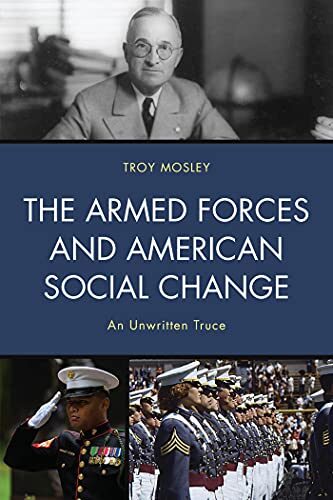How to Get Published,
Tips for Emerging Writers
Whether you’ve written a short story, article or novel, it can be a challenge to know how to go about getting your work published, particularly as a new writer.

If you’re a horror genre enthusiast, you’ll likely be aware that the act of writing and reading is a popular theme in horror movies (a classic of course being The Tingler – currently available on FuboTV if you haven’t yet experienced it).
The process of creation can indeed be a scary prospect! Luckily, it doesn’t have to be quite as terrifying an ordeal as portrayed in the movies. You just need to put in time, work and research when it comes to the publishing part.
There are many things to look out for – and things to avoid. We’ve put together a number of tips to help you on your way to getting your first piece of work published and marketing your writing.
Familiarize Yourself with the Publisher
Don’t just send out query letters en masse and hope one of them will find its way to the publisher or agent who will want to make you into the next literary sensation. It requires a great deal more research and planning.
Your work has a far better chance of getting published if you do your due diligence. Carefully pore through the morass of possible websites, publishers and agents to whom to submit your work to. You’ll need to find out what type of material they already publish in addition to what they look for in a prospective author to see who you realistically think is the best possible match.
Review their catalogue of articles, previously published or agented work. Read a few pieces that interest you or sound similar to yours. Eliminate any from your list that don’t sound like a good fit, because if something seems off to you, it will definitely seem off to them.
Never Send Out the Entire Manuscript… Unless Asked
Every publisher and agent has their own submission guidelines. Almost always, you’ll find these printed directly on their website.
In fact, if you don’t find an agent or publisher’s submission guidelines printed on their website, there’s a good chance they don’t accept unsolicited submissions at all, or at least aren’t accepting them currently.
Read the submission guidelines for each individual agent or publisher to whom you plan to submit work. Follow them to the letter. This includes submitting only what is requested, be it a query letter, a description of the article or the first few pages or chapters of a book.
The agent or publisher will always request more if interested. If, on the other hand, you send the entire piece of content or manuscript against the explicit instructions of the guidelines, your submission may find its way into the trash before anyone even reads the cover letter.
Format Your Work Properly
Make sure to format your work according to each agent or publisher’s submission guidelines, including font type and size, paragraph indentation and spacing. When in doubt, use the most appropriate formatting for the genre of material you’re sending, such as MLA or APA.
Check whether an agent or publisher wants pages numbered. Including or excluding the first page, and where the agent or publisher wants you to place those numbers, as each one may desire it in different places.
Check whether you should place your full name and contact information on the first page. Include a header with that information on subsequent pages.
Make Each Cover Letter Personal

Let’s be honest. Most sites, publishers and agents don’t even read cover letters. But those that do want to know you’re writing directly to them and not sending out the same form letter you’ve copied and pasted to every other publisher or agent you’re querying.
This includes addressing a specific individual, who if they feel your work is a good fit, might move it up the chain. Make sure to spell this person’s name correctly and address them by his or her correct title.
This part of the process also includes editing your material carefully, including your cover letter or query letter for grammatical errors. This can’t be stressed enough.
Even the best submissions can be discarded for incorrect grammar. An editor or agent will conclude that if you can’t be trusted to perform the simple task of submitting your best, most perfected and polished work, how can you be trusted to manage the collaborative demands of the long, arduous publication process.
In addition, if you’ve read any of a particular agent or publisher’s previously agented or published material, mention it by name in the letter and say a brief, complimentary but honest word about it.
Get Used to Rejection
As a writer, you will face a lot of rejection. It’s no testament to your talent or lack thereof. It’s just the law of numbers. There are only so many publishers publishing only so many books and journals per year. Thousands, if not millions, of writers submitting work to those publishers for consideration.
If a publisher rejects your work, it’s only because the publisher thinks your work is not the right fit for their audience or their needs at this time. That’s all.
If an agent rejects your work, it’s because the agent feels he or she can’t properly represent your work to the publishers he or she deals with. This is actually doing you a favor.
Just be diligent and be persistent. Believe in yourself and trust in your work. If you like your work, other people out there will too, and some agent or publisher will recognize that.
You just have to find that person. The only way to do it is by forging ahead through seemingly endless hordes of rejection. Simply steel yourself for it ahead of time and press on.
Never Pay for Publication
The biggest publication scams out there also happen to be the easiest to recognize, fortunately. The stand-out red flag is a publication that requires you to pay money to get your work published.
It doesn’t matter what amount of money a person or company asks you to pay. If anyone asks you to pay a dime to get your work published, they should fall into the scam pile.
In short; no legitimate publisher will ever ask you for money to publish your work.
Armed with these simple tools of the trade, you can take your hard work to the next level. You can give it the best chances of getting out into the world and in front of interested readers’ eyes
Visits: 41









